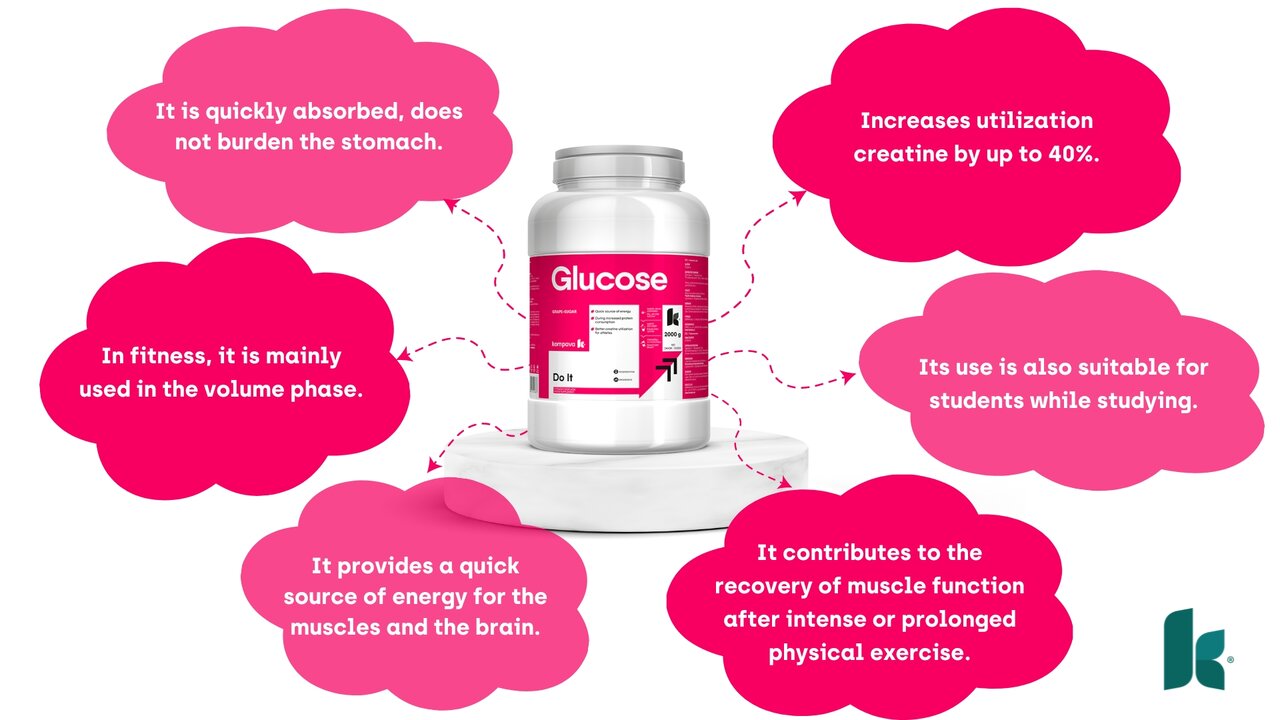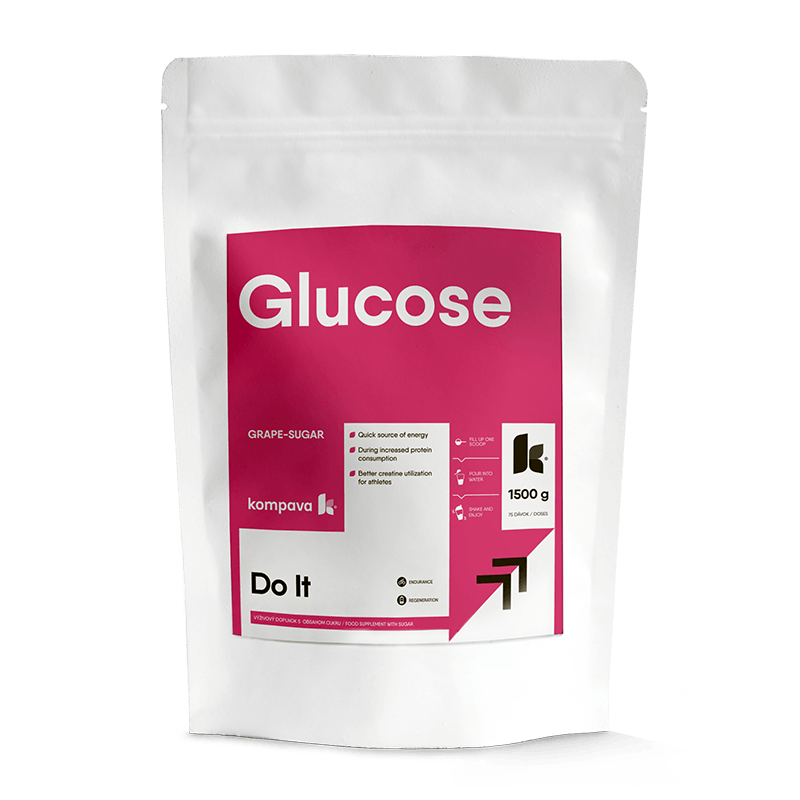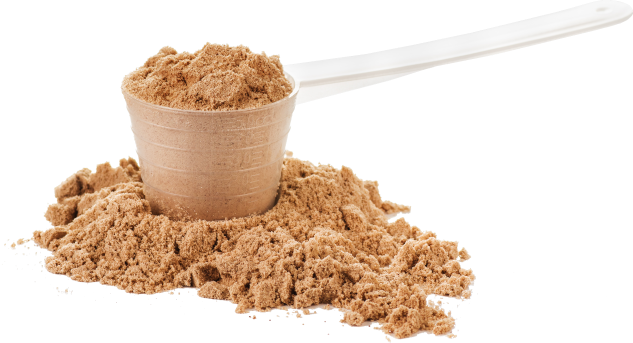Glucose is a simple sugar (monosaccharide) and the main source of energy for cells in the human body. It is an essential molecule in many biological processes and is essential for the proper functioning of organs, including the brain.Glucose is the only form of sugar that flows into the blood and thus reaches the whole body - it works as a quick source of energy or "fuel for the muscles and the brain", without glucose the brain cannot work properly. Glucose is the only source of energy that nerve cells (neurons) can use. If the body has enough or excess glucose, it starts storing it in the liver and muscles in the form of glycogen (muscle sugar).
Glycogen is created by connecting glucose molecules and serves as an "energy store" in case the body needs it.
Glucose contributes to the restoration of normal muscle function after high-intensity or prolonged physical exertion resulting in muscle fatigue and depletion of skeletal muscle glycogen stores. We recommend adding glucose to creatine as well, thanks to which the utilization of creatine increases by up to 40%, while a reaction occurs when creatine automatically reaches the target cell faster.
Glucose is as calorically rich as beet sugar, but has a lower sweetness, by about 20%. A teaspoon of glucose is as sweet as 0.8 teaspoons of sugar.

Glucose contains:
- 100% D - glucose
Also called grape sugar, dextrose or starch sugar, it is a monosaccharide that is immediately absorbed into the blood without burdening the digestive system.











